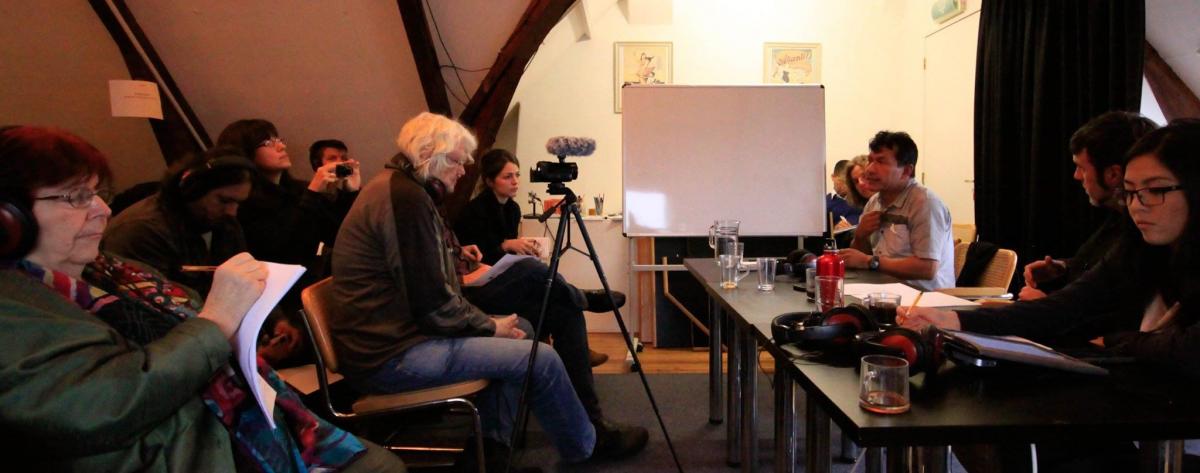Indigenous representatives and environmental activists came to the Netherlands to report on the conflicts between indigenous communities in the Amazon and the oil companies active in the area.
Aurelio Chino, leader of the Peruvian Quechua communities along the Pastaza River, and Humberto Piaguaje, leader of Ecuador’s Secoya indigenous tribe, made their voices heard in the public forum: “Pluspetrol and Chevron: Impacts on indigenous communities and avenues for access to remedy and justice”. The event in Amsterdam was organized by the Transnational Institute with the support of Hivos.
The representatives explained their cases and the initiatives they are taking to seek justice and remedy of their land, telling the audience in detail how their people have struggled for decades with the negative impacts that oil and gas operations have on their livelihoods, rights and well-being.
Aurelio Chino complained that Pluspetrol did not comply with the agreements reached with the indigenous communities to repair the damage caused in the area of the Pastaza River. Chino noted that studies have confirmed the presence of heavy metals in the rivers that surround the area, which has caused illnesses among indigenous peoples who inhabit the region. He requested the support of organizations and activists for the initiative to take legal action against the company in the Netherlands that would force it to repair the damage.
Humberto Piaguaje said that indians and peasants of the northern Ecuadorian Amazon were affected by the operations of Texaco (acquired by Chevron in 2001). In 2003, a class action lawsuit was brought against the company in Ecuador alleging severe environmental contamination. Chevron was ordered to pay $8.6 billion in damages. Despite having lost the case in Ecuador, Texaco-Chevron has to date not yet allocated funds to repair the damage they caused.
Pablo Fajardo, lead lawyer on the Chevron case, said in his intervention that several studies and court decisions have already concluded that Texaco-Chevron in Ecuador has caused the worst environmental crime in history.
“They deliberately dumped more than 18 billion gallons of toxic waste water, spilled roughly 17 million gallons of crude oil, and left hazardous waste in hundreds of open pits dug out of the forest floor”, he said.
The presentations were attended by Tami Okamoto, member of the United Amazonian Indigenous Peoples in Defence of Their Territories. Dutch specialists in the legal field, who shared possible strategies for achieving justice and remediation. also participated in the roundtable discussion.




